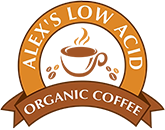Coffee lovers often enjoy their daily cup for its comforting ritual and satisfying experience. While coffee can be nutrient-rich and offer health benefits, there is a lesser-known dark side to this beloved beverage - the presence of mold. Many coffee brands contain mold and the toxins they produce, known as mycotoxins. In this article, we will explore how mold and mycotoxins can affect your body and discuss ways to avoid them while still enjoying your daily coffee.
Background on Mold and Mycotoxins
Mold is a type of fungus that reproduces by spreading spores, leading to its rapid growth on various surfaces, including stored fruits, vegetables, and even coffee beans. Mold can produce chemical compounds called mycotoxins, which are known to be harmful and potentially toxic to humans. Improper storage conditions or extended shelf life can promote mold growth and mycotoxin production.
The Health Risks of Mycotoxins
Exposure to mycotoxins can have adverse health effects, especially when consumed over long periods. Some individuals may have a lower tolerance for mycotoxins and experience symptoms such as brain fog, stomach discomfort, and general illness. Chronic exposure to mycotoxins has been linked to liver and kidney disease, and certain mycotoxins are even considered carcinogenic. Due to these risks, many countries have strict regulations on mycotoxin levels in food products sold to consumers.
Mold and Mycotoxins in Coffee
Contrary to popular belief, mold is not only found on fresh produce or languishing in the corner of your kitchen. It is prevalent in coffee beans, particularly in those that are improperly stored or exposed to moisture. Studies have shown that as many as 9 out of 10 coffee brands may contain mold or mycotoxins, although some estimates suggest lower percentages. Green coffee beans are particularly susceptible to higher levels of mycotoxins, but the roasting process can help reduce their presence.
The Role of Organic Coffee
While opting for organic coffee may seem like a logical choice for those concerned about mold and mycotoxins, it is not a foolproof solution. Organic coffee beans are grown without the use of synthetic chemicals, making them cleaner in terms of avoiding pesticides and fungicides. However, mold and mycotoxins are primarily related to processing and storage rather than growing methods. Therefore, it is possible to find coffee that is both organic and free from mold, such as Alex's Low-Acid Organic Coffee.
Drinking Mold-Free Coffee
With the increasing awareness of mold and mycotoxins in coffee, finding mold-free options is becoming more accessible. The best way to ensure your coffee is free from mold and mycotoxins is to choose a brand that undergoes independent testing for these contaminants. Alex's Low-Acid Organic Coffee is one such brand that has been tested and found to be free from mold and mycotoxins. By selecting a tested brand, you can enjoy the health benefits of coffee without the worry of consuming potentially harmful substances.
Proper Storage and Maintenance
Once you have purchased a mold-free coffee like Alex's Low-Acid Organic Coffee, it's essential to maintain its quality and prevent mold growth. Store your coffee in a cool, dark place, avoiding exposure to warmth and humidity for extended periods. By taking these precautions, you can ensure that your coffee remains uncontaminated and ready to brew a pure and clean cup.
In conclusion, mold and mycotoxins are present in many coffee brands, posing potential health risks to consumers. However, by choosing a tested and mold-free coffee like Alex's Low-Acid Organic Coffee, you can enjoy the taste and benefits of this popular beverage without compromising your well-being. By understanding the importance of proper storage and selecting trustworthy brands, you can make informed choices and relish your daily cup of coffee with peace of mind.

